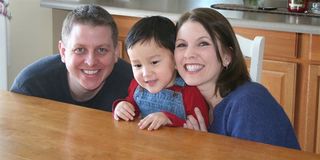Genetics
Why Would Anyone Run For Office? It’s In Their Genes?
New research explores the role of "pre-birth" factors in running for office.
Posted October 1, 2017
I’ve spent many of my adult years around or studying politicians. And for the life of me I’ve never understood why someone would want to run for office. Candidates often spend a great deal of their own money (and their family’s and friends’) to go around talking to a lot of people, most of whom don’t want to talk to them. What’s the result? Usually they get accused of being evil or stupid by political opponents.
Then, if they win, they spend countless hours raising money, wallowing in the minutiae of legislation, and talking to a lot of people, many of whom they don’t want to talk to. What’s the result? Usually they get accused of being evil or stupid by political opponents, and they rarely, if ever, cast a decisive vote.
No! Thank! You!
SO WHY WOULD PEOPLE VOLUNTEER FOR THIS?
We political scientists offer a number of factors that contribute to someone deciding to run for office: personality type, a sense of civic duty, opportunity… But anybody who thinks about all the family political dynasties must have a gut sense there’s something else going on, too.

Remember the Bushes (two US presidents and one state governor)? The Adamses (two US presidents)? The Trudeaus (two Canadian prime ministers)? The Nehru-Gandhis (three Indian prime ministers)? The Kenyattas (two Kenyan prime ministers)? And these are just at the national level. Think of family dynasties at lower levels (e.g., the Cuomos of New York, Daleys of Chicago…). And those at the level of siblings (the Kennedys, Roosevelts…) not parent-child pairings like above.
YEP, I’M NOT SURPRISED
A nice article in Political Behavior from researchers at Uppsala University and New York University suggests there’s a biological factor as well. Specifically, Sven Oskarsson, Christopher Dawes, and Karl-Oskar Lindgren show that “pre-birth” factors like genes and pre-natal environment are related to people’s decision to run for office.
And the effect is not trivial. Their results show that people who have a biological parent who ran for office are more than twice as likely to run themselves. In Sweden at least, where this research took place, about 2.3% of people ran for office when they didn’t have a biological parent who ran, but having a biological parent who ran more than doubled that percentage.
How do they know this? Sweden keeps a Multi-Generation Registry that allowed these researchers to identify very large samples of adopted children and their biological and adoptive parents as well as non-adopted children and their biological parents.
To estimate the pre-birth/biological effects and post-birth effects like political socialization, the researchers looked at the adopted children to see how much, if any, having a biological parent who ran for office increased the child’s likelihood of running for office. Not surprisingly, having an adoptive parent (post-birth effect) who ran for office increased the child’s probability of running by 3.4 percentage points, but also having a biological parent (pre-birth effect) who ran for office increased the child’s probability of running by an additional 3.5 percentage points, even though the biological parents had no contact with the child since s/he was one year old.
Note that I’ve vastly over-simplified the description of this study. If you want to read the article for yourself, it’s open access and available here. (Loud applause for these authors for making this possible!)
YOU KNOW I CAN’T RESIST
So biology matters in the likelihood someone will run for office. Don, Jr.? Ivanka? After their political experiences so far, genetics are the only reason I can imagine they’d run.

References
(OPEN ACCESS): Oskarsson, S., Dawes, C.T. & Lindgren, KO. Political Behavior (2017). https://doi.org/10.1007/s11109-017-9429-1.


